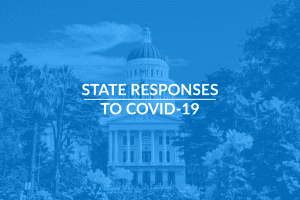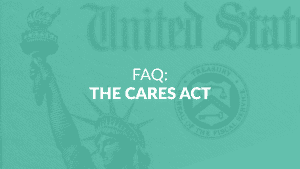The economic crisis caused by the coronavirus pandemic poses a triple challenge for tax policy in the United States. Lawmakers are tasked with crafting a policy response that will accelerate the economic recovery, reduce the mounting deficit, and protect the most vulnerable.
To assist lawmakers in navigating the challenge, and to help the American public understand the tax changes being proposed, the Tax Foundation’s Center for Federal Tax Policy modeled how 70 potential changes to the tax code would affect the U.S. economy, distribution of the tax burden, and federal revenue.
In tax policy there is an ever-present trade-off among how much revenue a tax will raise, who bears the burden of a tax, and what impact a tax will have on economic growth. Armed with the information in our new book, Options for Reforming America’s Tax Code 2.0, policymakers can debate the relative merits and trade-offs of each option to improve the tax code in a post-pandemic world.


Trade-offs of Delaying Tax Filing and Instituting a Payroll Tax Holiday on Businesses and Individuals
Some policymakers are proposing a payroll tax holiday for businesses and individuals for 2020 and a complete delay in filing deadlines for tax year 2019 and 2020 to April 2021. What are the pros and cons of doing so?
4 min read
Evaluating the Trade-offs of Small Business Relief Provisions of the CARES Act
The small business provisions in the CARES Act support small businesses and nonprofits seeking economic relief during this downturn. However, creating multiple programs with overlapping purposes and differing qualification requirements makes relief more complicated, vague, and not neutral.
6 min read
These States Could Tax Your Recovery Rebates
Due to a quirk of some state tax codes, the recovery rebates in the CARES Act could increase your income tax liability in six states: Alabama, Iowa, Louisiana, Missouri, Montana, and Oregon.
4 min read
Watch: Tax Foundation Experts Discuss Short-term Coronavirus Relief Packages
What could the next phase of relief look like and what role does tax policy play in ensuring the U.S. and countries around the world make a strong economic recovery?
1 min read
Temporary Work Locations in a Permanent Establishment World
While much of the fiscal conversation surrounding the current pandemic has focused on tax relief and tax deferrals, another significant angle needs to be explored: the question of economic nexus.
3 min read

April 2nd Evening State Tax Update
California extends tax filing and payment deadline to July 31 for a broad spectrum of business taxes as Virginia keeps May 1st tax filing deadline.
4 min read
Tracking State Legislative Responses to COVID-19
Many states are racing to pass budgets, emergency COVID-19 supplemental appropriations, and other must-pass legislation as quickly as possible. We’re tracking the latest state legislative responses to the coronavirus crisis.
66 min read
Federal Coronavirus Relief: CARES Act FAQ
Congress recently passed the largest economic relief bill in American history (CARES Act). We’ve created a FAQ portal to better inform policymakers, journalists, and taxpayers across the country on the new law.
13 min read